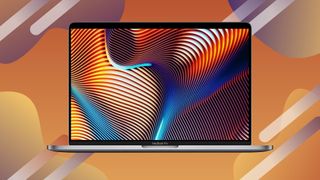Entry-level MacBook Pro could arrive with M2 chip by end of 2022
The MacBook Pro could lose its ProMotion Display

We could see the next generation of M2-powered MacBook Pro laptops launch in November this year according to Bloomberg tech reporter Mark Gurman, who anticipates that Apple is planning to introduce a new entry-level MacBook Pro to replace the current M1-powered 13-inch MacBook Pro released back in 2020.
As reported by 9to5Mac, Gurman shared details for this in his Power On newsletter, where he anticipates the MacBook will not only usher in the next generation of Apple silicon, but will also drop features like the Touch Bar much like the 14-inch and 16-inch models have done, which would officially end the use of the controversial TouchBar altogether in the Apple Lineup.
Gurman writes: “I’d expect the new entry-level MacBook Pro to match the high-end MacBook Pros by losing the Touch Bar, but key differentiators will be lesser displays, processors, and storage, and no ProMotion nor miniLED. It’ll be one of many Macs in the pipeline with the M2 chip, including refreshes to the 24-inch iMac, entry-level Mac mini and revamped MacBook Air.”
As Gurman notes, this prospective MacBook Pro model would also cut out some beloved features from the current 14-inch and 16-inch models, such as the 120Hz MiniLED ProMotion display and cutting back on storage and processing power. The trade-off will be that at least one entry of the MacBook Pro lineup could remain relatively affordable, though it's unclear if this new model will also include features such as a built-in HDMI and SD card reader.
An official source for these predictions hasn't been provided and even the best-informed leaks can prove to be inaccurate so take all this information with a pinch of salt. If it proves true then not only will we get to see the next generation of the Apple SoC (system-on-a-chip), but also new additions to the iMac, Mac Mini and MacBook Air line by the end of the year.
Analysis: Who exactly is the new MacBook Pro for?
The M1-powered series of MacBooks certainly made waves in 2021, so it's natural that we're just as excited to see what performance boosts are possible when its next-generation arrives. That said, the current 13-inch MacBook Pro is a bit of a middle man that doesn't truly serve any particular audience as well as other offerings in the Mac family of products can.
It shares the same M1 SoC and storage/memory configurations that can be found within the MacBook Air, and the boost to performance and power is fairly mediocre, meaning you're requirements have to sit somewhere between that of the M1 MacBook Air (which currently ranks as our top recommended laptop on the market) and the more powerful 14-inch and 16-inch MacBook Pro laptops that contain the new M1 Pro or M1 Max chips.
Things get more confusing with the news that this entry-level MacBook Pro could lose out on some of the best features from its bigger, more powerful siblings, something that arguably makes them 'Pro' devices in the first place alongside larger storage and memory capacities.
Are you a pro? Subscribe to our newsletter
Sign up to the TechRadar Pro newsletter to get all the top news, opinion, features and guidance your business needs to succeed!
The only real difference between the M1 chips inside the current 13-inch MacBook Pro and MacBook Air are slightly improved graphics and cooling. It's certainly a better device, but the difference in performance is too small for most people to opt for the Pro model against the more affordable MacBook Air.
If this anticipated new MacBook Pro model does drop the Touch Bar and ProMotion Display, we can only hope that other features from the larger MacBook Pro laptops are included, such as reintroducing ports without adding any additional expense. The lack of built-in ports hinders the accessibility of the current 13-inch M1 for the creative market, so the loss of a miniLED display feels like a suitable trade-off if we can finally stop relying on a dongle.
- Check out all the best cheap MacBook Pro deals
Jess is a former TechRadar Computing writer, where she covered all aspects of Mac and PC hardware, including PC gaming and peripherals. She has been interviewed as an industry expert for the BBC, and while her educational background was in prosthetics and model-making, her true love is in tech and she has built numerous desktop computers over the last 10 years for gaming and content creation. Jess is now a journalist at The Verge.
Most Popular

